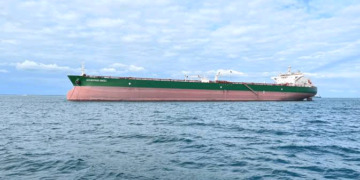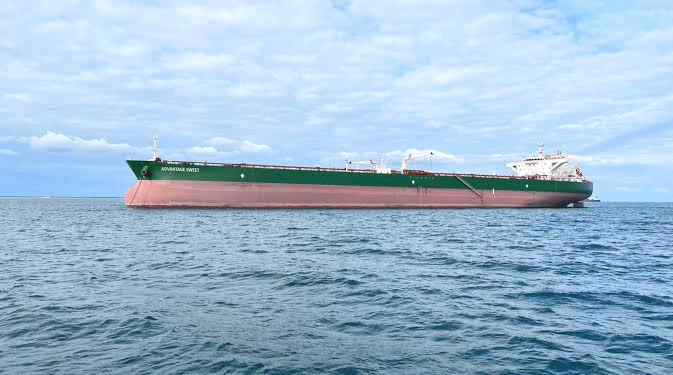By Oyintari Ben
As tensions with the United States increases, Iran has again taken control of an oil tanker in the Strait of Hormuz. This is the second occurrence in the area in the past week.
On Wednesday, the Iranian media and the US 5th Fleet in the Middle East confirmed that the Islamic Revolutionary Guard Corps (IRGC’s) naval force had stopped a tanker in the busy waterway.
A dozen fast-attack IRGC vessels looked to be approaching a tanker, later identified as the Panama-flagged Niovi, in a video published by the 5th Fleet.
The US claimed that during the “illegal seizure,” the tanker was compelled to change course and enter Iranian territorial seas.
Iran’s state-run IRNA news agency verified the IRGC’s seizure of the ship, but no other information was provided.
According to a report by the Iranian judiciary’s Mizan news agency, the Tehran prosecutor reportedly stated that the seizure was the consequence of a court order following a plaintiff’s complaint.
The name of the ship or the reason it was stopped was not immediately confirmed by the IRGC.
The 5th Fleet described the seizure as a breach of international law and a “threat to maritime security and the global economy” last Thursday in the Gulf of Oman by the Iranian army’s naval force.
Iran, however, claimed that a tanker dubbed Advantage Sweet, operated by Turkey and owned by China and transporting Kuwaiti crude oil for US energy company Chevron Corp., collided with an Iranian vessel, leaving several crew members missing and hurt.
Iran had also said that despite numerous warnings, the Advantage Sweet, which had roughly two dozen Indian crew members, had crossed the Strait of Hormuz and left the area.
Western media, however, stated that the vessel’s seizure was a response to the US seizing an oil tanker a few days prior to imposing unilateral sanctions on Tehran.
Amid US political setbacks, the seizure on Wednesday occurred as Iranian President Ebrahim Raisi arrived in Damascus for a two-day visit and met with Syrian President Bashar al-Assad. Tehran hailed the meeting as a “strategic victory” for the region.


































